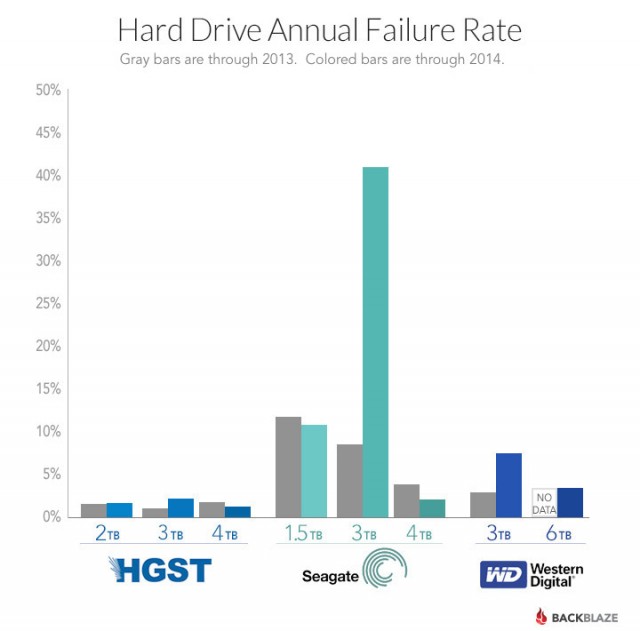nature boy
Member
http://arstechnica.com/information-...ned-once-more-hgst-rules-seagate-is-alarming/

God damn Seagate.
The study: https://www.backblaze.com/blog/best-hard-drive/
They have a lot of data. Wish Amazon, Google and Facebook would publish their data.
Note: Some people are asking if this applies to SSDs: No, this is stricly magnetic hard disks (HDD).
For a second year, the standout reliability leader was HGST. Now a wholly owned subsidiary of Western Digital, HGST inherited the technology and designs from Hitachi (which itself bought IBM's hard disk division). Across a range of models from 2 to 4 terabytes, the HGST models showed low failure rates; at worse, 2.3 percent failing a year. This includes some of the oldest disks among Backblaze's collection; 2TB Desktop 7K2000 models are on average 3.9 years old, but still have a failure rate of just 1.1 percent.
At the opposite end of the spectrum are Seagate disks. Last year, the two 1.5TB Seagate models used by Backblaze had failure rates of 25.4 percent (for the Barracuda 7200.11) and 9.9 percent (for the Barracuda LP). Those units fared a little better this time around, with failure rates of 23.8 and 9.6 percent, even though they were the oldest disks in the test (average ages of 4.7 and 4.9 years, respectively). However, their poor performance was eclipsed by the 3TB Barracuda 7200.14 units, which had a whopping 43.1 percent failure rate, in spite of an average age of just 2.2 years.
...
As before, this doesn't mean that anyone with a Seagate disk is at risk of an imminent hard disk failure (though you should always have backups!). Backblaze operates disks outside of the manufacturer's specified parameters.

God damn Seagate.
The study: https://www.backblaze.com/blog/best-hard-drive/
They have a lot of data. Wish Amazon, Google and Facebook would publish their data.
Note: Some people are asking if this applies to SSDs: No, this is stricly magnetic hard disks (HDD).
